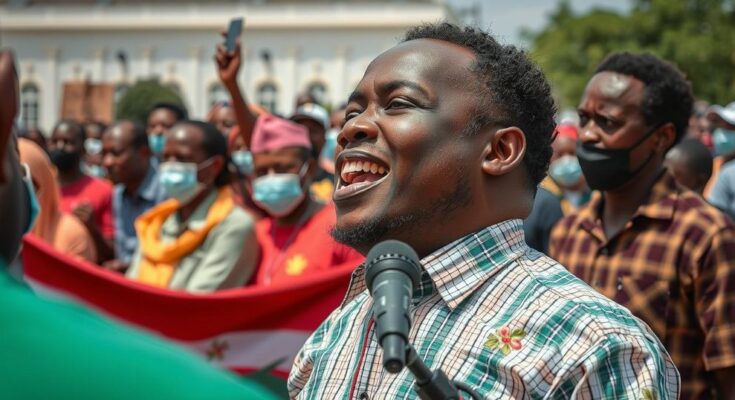Kenya faces growing outrage over recent abductions of government critics, prompting protests and calls for accountability from human rights organizations and legal authorities. Critics accuse the security forces of conducting illegal detentions, particularly following anti-government protests earlier this year. Activists demand immediate investigations, while evidence points to involvement from a covert security unit.
In Kenya, growing discontent is evident as rights groups, legal authorities, and politicians express deep apprehension regarding a series of recent abductions aimed at government opponents. On Friday, a protest occurred in Embu town in response to the disappearance of 24-year-old Billy Mwangi, who vanished the previous weekend. Human rights activists have accused the security forces of conducting numerous unlawful detentions since the youth-led anti-government demonstrations took place in June and July. The latest victims of these abductions appear to be predominantly young males critical of President William Ruto via social media.
Despite police denials of involvement, activists have raised concerns about the apparent lack of investigation into these disappearances. The Law Society of Kenya has criticized the police inspector-general’s recent statements as insufficient, demanding immediate action against the perpetrators or his resignation. “If indeed the police are not complicit, they must immediately investigate and prosecute those responsible,” stated the Law Society.
Human Rights Watch has indicated that their investigations point to a covert unit within various security agencies orchestrating these abductions. Additionally, former Deputy President Rigathi Gachagua has alleged that this unnamed unit is responsible for the disappearances, stating, “Abducting these children and killing them is not a solution… This is the first administration in the history of this country to target children for repression.”
The Kenya National Commission on Human Rights reported on Thursday an alarming 82 clandestine abduction cases attributed to unidentified armed individuals since June, with 29 individuals still unaccounted for. Their report includes the mention of seven abducted individuals since December 17, two of whom, Mwangi and Peter Muteti, disappeared shortly after sharing AI-generated images of President Ruto deceased.
Further reinforcing the gravity of the situation, the Kenyan Judiciary declared that “abductions have no place in law and indeed are a direct threat to the rights of citizens,” urging all security agencies to uphold the law and protect fundamental rights. The protests earlier this year, which were incited by proposed tax increases, marked the most significant crisis faced by Ruto’s administration since he assumed power in 2022. Although large-scale protests have diminished, public outrage persists, exacerbated by escalating living costs and ongoing claims regarding state brutality.
The issue of abductions in Kenya has resurfaced amid heightened political tension and dissent against the government, particularly under President William Ruto. Following a series of protests against proposed hikes in taxes, which many citizens deemed excessive, the government has faced accusations of employing heavy-handed tactics against dissenters. This has resulted in concerns regarding unlawful detentions and the safety of individuals expressing critical views against the administration, particularly young men expressing dissent on platforms like social media. Advocacy organizations and legal bodies have begun to rally against these trends, demanding accountability and transparency from law enforcement.
In summary, the recent rise in abductions in Kenya has sparked significant outrage among citizens, legal entities, and human rights organizations, with calls for accountability and an end to unlawful detentions. The situation reflects a broader pattern of repression faced by government critics, leading to increased public discontent. As activists demand investigations and legal action, the government’s response will be crucial in addressing the legitimacy of these claims and restoring public trust.
Original Source: www.barrons.com




